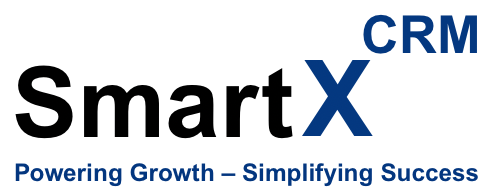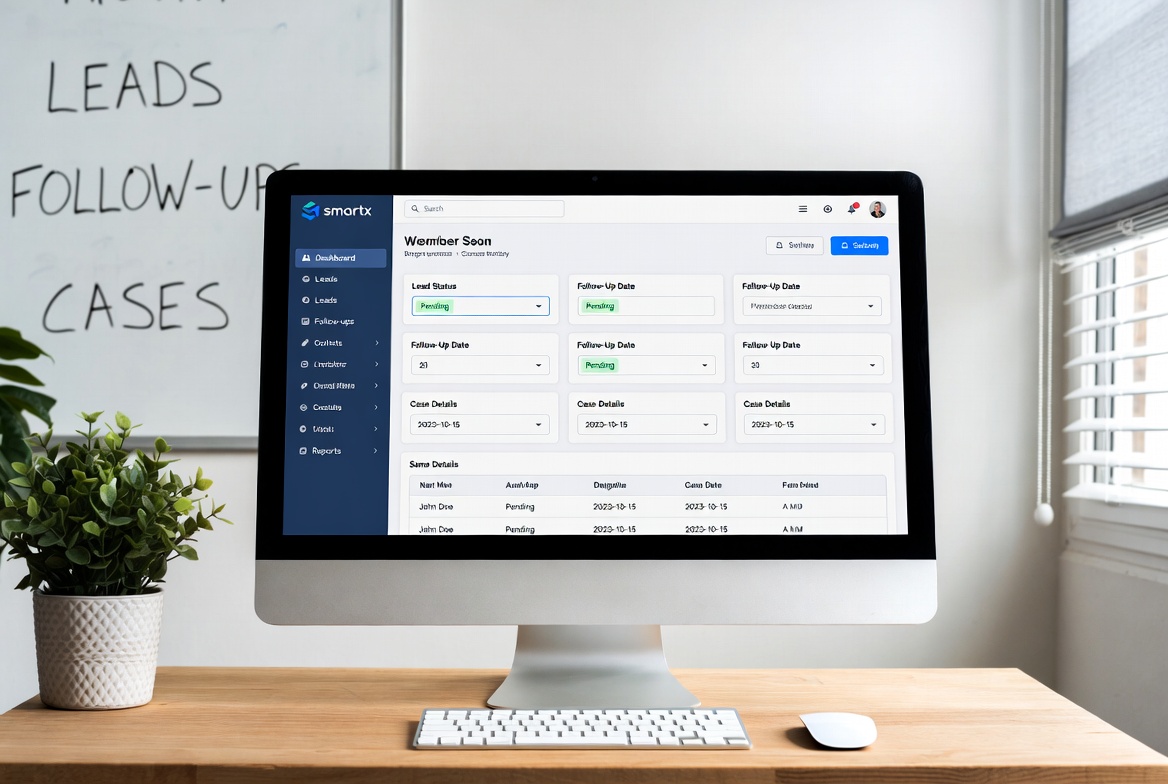The healthcare industry is rapidly evolving, and in 2025, choosing the right healthcare CRM software has become more critical than ever for medical practices, hospitals, and healthcare providers. With patient expectations rising and regulatory requirements becoming more complex, healthcare organizations need robust healthcare CRM solutions that can streamline operations, improve patient relationships, and ensure compliance.
This comprehensive guide explores the best healthcare CRM software available in 2025, providing detailed comparisons, pricing insights, and expert reviews to help you make an informed decision for your healthcare organization.
What is Healthcare CRM Software and Why Your Practice Needs It
Healthcare CRM (Customer Relationship Management) software is specifically designed to manage patient relationships, streamline healthcare operations, and improve overall patient care quality. Unlike traditional CRMs, healthcare CRM systems are built with HIPAA compliance, patient data security, and medical workflow automation in mind.
Modern healthcare CRM platforms serve as the central hub for patient information, appointment scheduling, communication management, and practice analytics. They help healthcare providers deliver personalized patient experiences while maintaining operational efficiency and regulatory compliance.
Top 10 Best Healthcare CRM Software Solutions in 2025
1. SmartX CRM Healthcare Solution
SmartX CRM stands out as a comprehensive healthcare CRM software solution designed specifically for modern medical practices. Our platform combines advanced patient management capabilities with powerful automation tools to transform how healthcare providers interact with their patients.
Key Features:
- HIPAA-Compliant Patient Management: Secure patient data handling with advanced encryption
- Automated Appointment Scheduling: Reduce no-shows with intelligent reminder systems
- Patient Communication Hub: Multi-channel communication including SMS, email, and WhatsApp
- Medical Billing Integration: Seamless integration with popular medical billing software
- Advanced Analytics Dashboard: Real-time insights into practice performance
- Lead Generation for Healthcare: Specialized tools for attracting new patients
Pricing: Starting at $49/month per user with customizable enterprise packages
Pros:
- Intuitive user interface designed for healthcare professionals
- Comprehensive patient journey management
- Excellent customer support with healthcare industry expertise
- Advanced automation features that save time
- Robust lead management capabilities
Cons:
- Learning curve for advanced features
- Premium pricing for smaller practices
Best For: Medical practices, wellness centers, and healthcare organizations looking for a complete patient relationship management solution.
2. Salesforce Health Cloud
Salesforce Health Cloud is a healthcare CRM platform built on the world’s leading CRM infrastructure, specifically tailored for healthcare organizations.
Key Features:
- Patient 360-degree view
- Care coordination tools
- Provider collaboration features
- EHR integration capabilities
- Advanced analytics and reporting
Pricing: Starting at $300/month per user
Pros:
- Extensive customization options
- Strong integration ecosystem
- Scalable for large healthcare organizations
- Advanced AI capabilities with Einstein Analytics
Cons:
- High cost for smaller practices
- Complex setup and configuration
- Steep learning curve
Best For: Large healthcare systems and enterprises requiring extensive customization.
3. Zoho CRM for Healthcare
Zoho CRM offers a healthcare CRM solution that’s part of their comprehensive business software suite, providing good value for small to medium healthcare practices.
Key Features:
- Patient record management
- Appointment scheduling
- Email automation
- Mobile accessibility
- Basic reporting tools
Pricing: Starting at $20/month per user
Pros:
- Affordable pricing structure
- Easy to use interface
- Good integration with other Zoho products
- Mobile-friendly design
Cons:
- Limited healthcare-specific features
- Basic automation capabilities
- Not specifically designed for healthcare workflows
Best For: Small healthcare practices with budget constraints.
4. Microsoft Dynamics 365 for Healthcare
Microsoft’s healthcare CRM software leverages the power of Dynamics 365 with healthcare-specific enhancements and integrations.
Key Features:
- Patient engagement tools
- Care team collaboration
- Telehealth integration
- Advanced analytics with Power BI
- Office 365 integration
Pricing: Starting at $115/month per user
Pros:
- Strong integration with Microsoft ecosystem
- Robust security features
- Scalable architecture
- Advanced analytics capabilities
Cons:
- Complex implementation process
- High licensing costs
- Requires Microsoft expertise for optimization
Best For: Healthcare organizations already using Microsoft technologies.
5. HubSpot CRM with Healthcare Features
While not exclusively a healthcare CRM, HubSpot offers healthcare-focused features and integrations that make it suitable for healthcare marketing and patient acquisition.
Key Features:
- Contact and lead management
- Email marketing automation
- Website integration
- Basic reporting tools
- Third-party healthcare integrations
Pricing: Free tier available, paid plans start at $45/month
Pros:
- User-friendly interface
- Strong marketing automation
- Excellent onboarding resources
- Free tier available
Cons:
- Limited healthcare-specific features
- Not HIPAA compliant in free version
- Basic patient management capabilities
Best For: Healthcare practices focusing on digital marketing and patient acquisition.
6. Pipedrive Healthcare CRM
Pipedrive offers a visual healthcare CRM solution with a focus on pipeline management and patient acquisition workflows.
Key Features:
- Visual pipeline management
- Activity reminders
- Email integration
- Mobile app
- Basic automation
Pricing: Starting at $14.90/month per user
Pros:
- Simple, visual interface
- Affordable pricing
- Good mobile experience
- Easy setup process
Cons:
- Limited healthcare-specific features
- Basic reporting capabilities
- No built-in HIPAA compliance
Best For: Small healthcare practices with simple CRM needs.
7. Nimble Healthcare CRM
Nimble provides a healthcare CRM platform that combines traditional CRM functionality with social media integration and patient communication tools.
Key Features:
- Social CRM capabilities
- Contact intelligence
- Team collaboration tools
- Pipeline management
- Integration options
Pricing: Starting at $25/month per user
Pros:
- Strong social media integration
- Good contact management
- Team collaboration features
- Reasonable pricing
Cons:
- Limited healthcare-specific features
- Basic automation capabilities
- No specialized healthcare compliance features
Best For: Healthcare practices emphasizing social media presence and patient engagement.
8. Insightly Healthcare CRM
Insightly offers healthcare CRM software with project management capabilities, suitable for healthcare organizations managing complex patient care projects.
Key Features:
- Project management integration
- Contact and lead management
- Email automation
- Custom fields and objects
- Reporting dashboards
Pricing: Starting at $29/month per user
Pros:
- Project management integration
- Customizable interface
- Good email automation
- Reasonable pricing structure
Cons:
- Limited healthcare-specific features
- Complex interface for basic users
- No built-in healthcare compliance tools
Best For: Healthcare organizations managing complex care coordination projects.
9. Freshworks CRM for Healthcare
Freshworks provides a healthcare CRM solution with focus on customer service and patient support automation.
Key Features:
- Lead scoring
- Email campaigns
- Phone integration
- Workflow automation
- Built-in phone system
Pricing: Starting at $15/month per user
Pros:
- Affordable pricing
- Good automation features
- Built-in communication tools
- User-friendly interface
Cons:
- Limited healthcare-specific features
- Basic reporting capabilities
- No specialized compliance features
Best For: Small to medium healthcare practices focusing on patient communication.
10. Keap (formerly Infusionsoft) Healthcare CRM
Keap offers healthcare CRM software with strong automation capabilities and patient nurturing workflows.
Key Features:
- Advanced automation
- Email marketing
- E-commerce integration
- Appointment scheduling
- Payment processing
Pricing: Starting at $79/month
Pros:
- Powerful automation features
- All-in-one platform
- Good email marketing tools
- Payment processing integration
Cons:
- Steep learning curve
- Higher pricing for small practices
- Complex setup process
Best For: Healthcare practices with complex marketing automation needs.
Essential Features to Look for in Healthcare CRM Software
When selecting the best healthcare CRM software for your practice, consider these critical features that can make or break your patient management success:
HIPAA Compliance and Data Security
The foundation of any healthcare CRM system must be robust security and HIPAA compliance. Look for solutions that offer:
- End-to-end encryption for all patient data
- Secure user authentication protocols
- Audit trails for all patient data access
- Business Associate Agreements (BAA)
- Regular security updates and monitoring
SmartX CRM’s healthcare solution prioritizes security with bank-level encryption and comprehensive HIPAA compliance built into every feature.
Patient Journey Management
Effective healthcare CRM platforms should track and manage the entire patient lifecycle:
- Initial lead capture and qualification
- Appointment scheduling and management
- Treatment history and follow-up care
- Patient communication preferences
- Referral tracking and management
Integration Capabilities
Your healthcare CRM software should seamlessly integrate with:
- Electronic Health Records (EHR) systems
- Medical billing software
- Telehealth platforms
- Laboratory systems
- Pharmacy management systems
- Insurance verification tools
Automated Communication Tools
Modern patients expect timely, personalized communication. Look for CRMs that offer:
- Automated appointment reminders via SMS, email, and phone
- Post-visit follow-up sequences
- Treatment plan reminders
- Birthday and wellness check reminders
- WhatsApp automation capabilities
Advanced Analytics and Reporting
Data-driven insights are crucial for healthcare practice growth. Essential reporting features include:
- Patient acquisition cost analysis
- Appointment no-show rates
- Treatment completion rates
- Revenue per patient metrics
- Referral source performance
- Patient satisfaction trends
Industry-Specific Healthcare CRM Solutions
Different healthcare specialties have unique CRM requirements. Here’s how top solutions cater to specific healthcare sectors:
Mental Health Practices
For mental health and psychiatric practices, CRM needs include:
- Therapy session scheduling
- Progress note integration
- Crisis management protocols
- Insurance authorization tracking
Wellness and Nutrition Practices
Wellness coaches and nutritionists require:
- Meal plan management
- Progress tracking tools
- Client goal setting features
- Supplement recommendation tracking
General Medical Practices
Traditional medical practices benefit from:
- Multi-provider scheduling
- Lab result integration
- Prescription management
- Chronic care management tools
Implementation Best Practices for Healthcare CRM
Successfully implementing healthcare CRM software requires careful planning and execution. Follow these best practices:
1. Data Migration Strategy
- Audit existing patient data for accuracy
- Create standardized data formats
- Plan for potential data loss scenarios
- Test migration in small batches
- Verify data integrity post-migration
2. Staff Training and Adoption
- Develop role-specific training programs
- Create user-friendly documentation
- Establish CRM champions within your team
- Provide ongoing support and refresher training
- Monitor adoption rates and address resistance
3. Workflow Integration
- Map existing workflows before implementation
- Identify automation opportunities
- Create new standardized processes
- Test workflows with real patient scenarios
- Continuously optimize based on user feedback
4. Compliance and Security Setup
- Configure HIPAA-compliant user roles
- Implement proper access controls
- Set up audit logging
- Create backup and recovery procedures
- Establish security monitoring protocols
ROI Analysis: Healthcare CRM Investment Returns
Investing in the right healthcare CRM software can deliver significant returns. Here’s what healthcare practices typically experience:
Patient Acquisition Improvements
- 25-40% increase in lead conversion rates
- 30-50% improvement in follow-up consistency
- 20-35% growth in referral patient volume
Operational Efficiency Gains
- 15-25% reduction in administrative time
- 40-60% decrease in appointment no-shows
- 30-45% improvement in staff productivity
Revenue Growth Metrics
- 20-30% increase in patient lifetime value
- 15-25% growth in overall practice revenue
- 35-50% improvement in patient retention rates
Future Trends in Healthcare CRM Technology
The healthcare CRM software landscape continues to evolve. Key trends shaping 2025 include:
Artificial Intelligence Integration
- Predictive patient behavior analytics
- Automated clinical decision support
- Intelligent appointment scheduling
- Natural language processing for patient communications
Telehealth Integration
- Seamless virtual appointment scheduling
- Integrated video consultation platforms
- Remote patient monitoring connections
- Digital prescription management
Patient Portal Enhancements
- Mobile-first patient experiences
- Self-service appointment booking
- Secure messaging capabilities
- Health record access and sharing
Advanced Analytics and Reporting
- Real-time practice performance dashboards
- Predictive analytics for patient outcomes
- Population health management tools
- Revenue cycle optimization insights
Choosing the Right Healthcare CRM: Decision Framework
Selecting the best healthcare CRM software for your practice requires systematic evaluation. Use this decision framework:
Step 1: Define Your Requirements
- List must-have vs. nice-to-have features
- Determine budget constraints
- Identify integration needs
- Assess team technical capabilities
Step 2: Evaluate Solutions
- Request demos from top candidates
- Test user interfaces with your team
- Verify compliance certifications
- Check customer references in healthcare
Step 3: Consider Implementation Factors
- Evaluate vendor support quality
- Assess training and onboarding programs
- Review data migration capabilities
- Understand ongoing maintenance requirements
Step 4: Calculate Total Cost of Ownership
- Include licensing fees
- Factor in implementation costs
- Consider training expenses
- Account for ongoing support costs
Common Healthcare CRM Implementation Challenges
Understanding potential challenges helps ensure successful healthcare CRM software implementation:
Data Quality Issues
- Incomplete patient records
- Duplicate patient entries
- Inconsistent data formats
- Legacy system integration problems
User Adoption Resistance
- Staff comfort with existing processes
- Fear of technology complexity
- Inadequate training programs
- Lack of clear benefits communication
Technical Integration Problems
- EHR connectivity issues
- API limitations
- Security configuration challenges
- Performance optimization needs
Conclusion: Making the Smart Healthcare CRM Choice in 2025
Choosing the best healthcare CRM software in 2025 requires careful consideration of your practice’s unique needs, budget constraints, and growth objectives. While solutions like Salesforce Health Cloud and Microsoft Dynamics 365 offer powerful enterprise-level capabilities, they may be overkill for smaller practices.
For healthcare organizations seeking a balanced approach that combines healthcare-specific features, user-friendly design, and reasonable pricing, SmartX CRM emerges as the optimal choice. Our platform is specifically designed for healthcare providers, offering:
- Comprehensive patient management capabilities
- HIPAA-compliant security from the ground up
- Intuitive interface designed for busy healthcare professionals
- Excellent customer support with healthcare industry expertise
- Advanced automation features that save valuable time
The investment in the right healthcare CRM system pays dividends through improved patient relationships, streamlined operations, and sustainable practice growth. As healthcare continues to evolve, having a robust CRM foundation becomes increasingly critical for success.
Ready to transform your healthcare practice with the best healthcare CRM software available? Explore SmartX CRM’s healthcare solutions and discover how we can help you deliver exceptional patient care while growing your practice.
For more insights on healthcare CRM benefits and essential healthcare CRM features, explore our comprehensive healthcare CRM resource library.
About SmartX CRM: SmartX CRM is a leading provider of customer relationship management solutions designed specifically for healthcare organizations. Our HIPAA-compliant platform helps medical practices, wellness centers, and healthcare providers streamline operations, improve patient relationships, and drive sustainable growth.





Leave a comment: